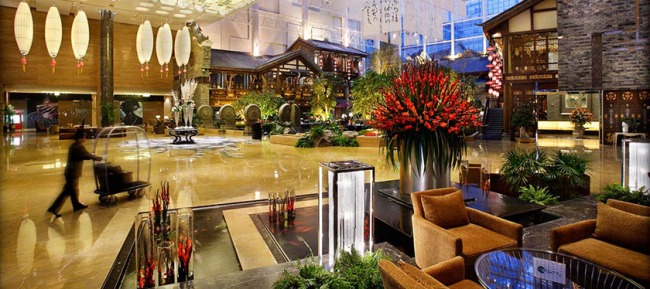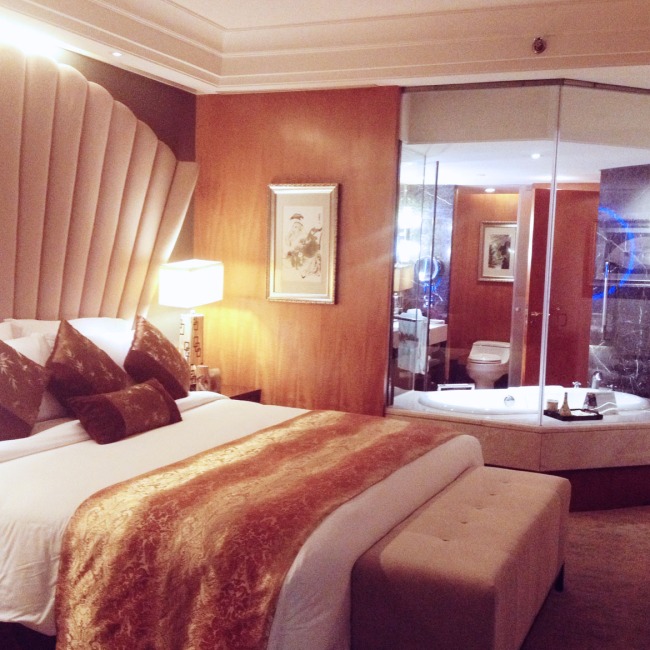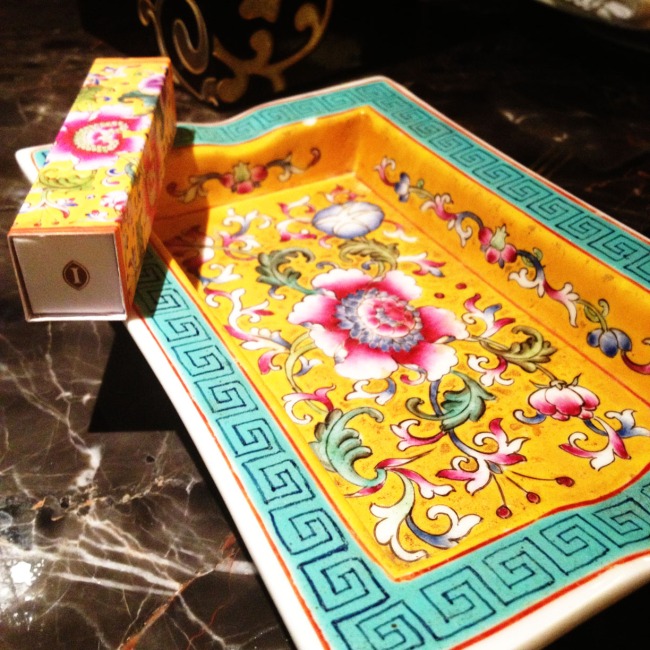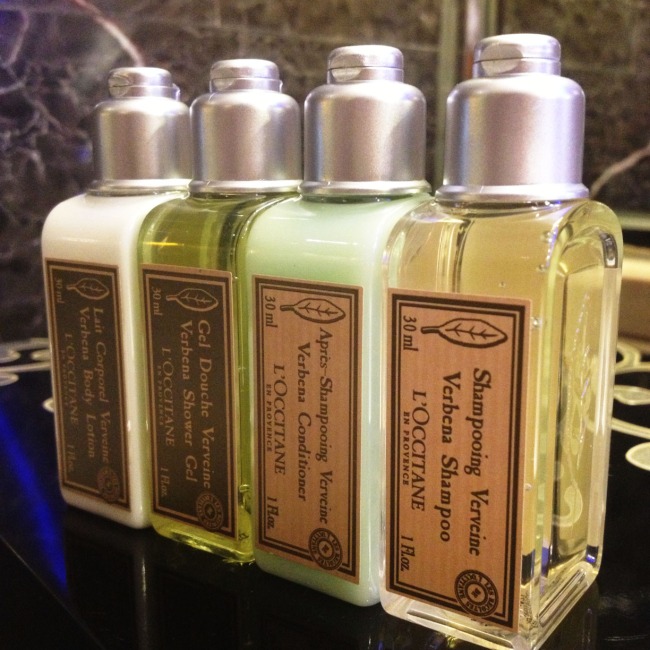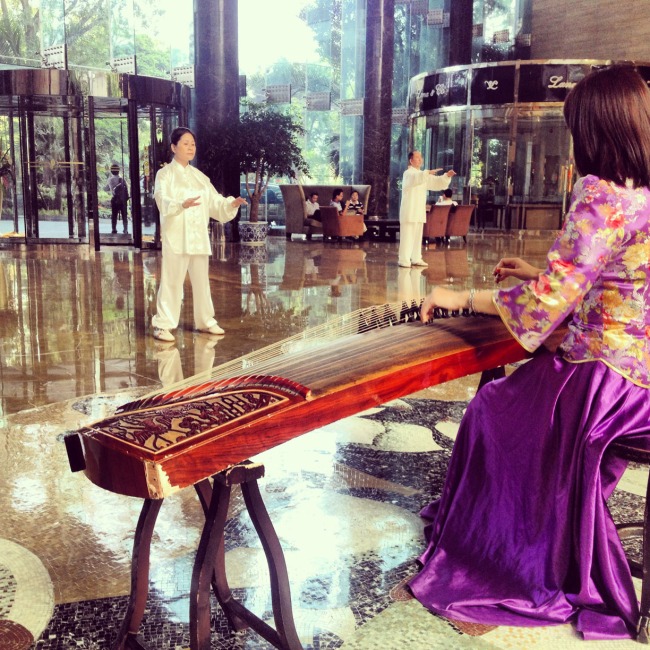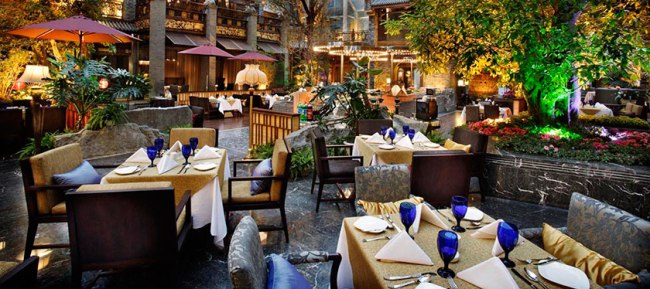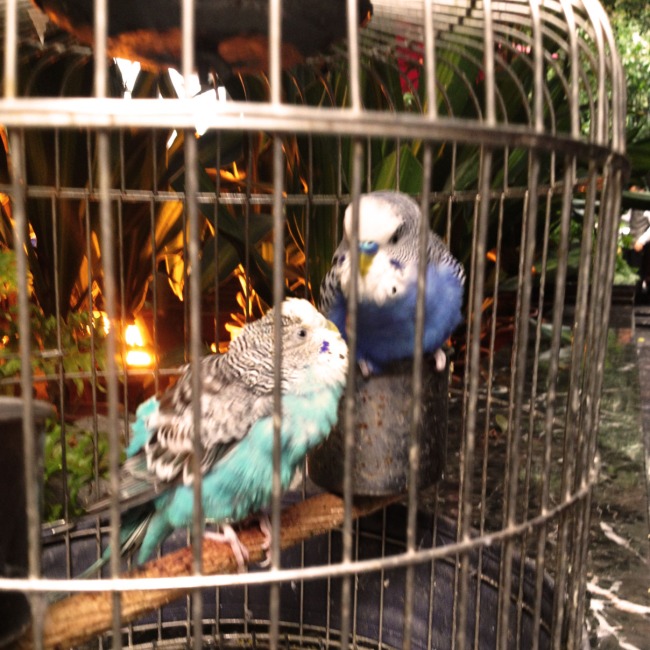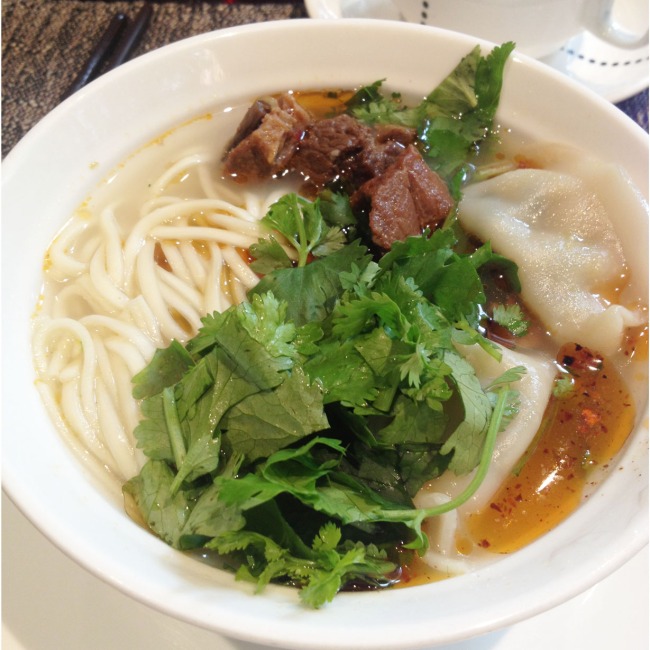The last time I set foot in Chengdu was in May 2009, a year after the Great Sichuan Earthquake, a disaster that originated in Wenchuan County but killed almost 70,000 people beyond that epicentre.
My trip then was to see how the Chinese province had recovered from nature’s wrath, and it took me mostly to areas beyond the provincial capital, such as Yibin and Zigong cities, and as far north as the amazing Jiuzhaigou nature park in the Aba Tibetan Qiang Autonomous Prefecture. My time in Chengdu was merely a night.
This time round, I got to stay in Chengdu for five nights. Most of my time there was for work, but I managed to steal a couple of hours each on two days to see some sights.
And I must say, I love Chengdu much more than I do the other Chinese cities I’ve been to.
Of course, the brilliant InterContinental Century City Chengdu played a big part in shaping my pleasant impression of the Chinese city. Never underestimate the importance of the hotel experience in the bigger scheme of a trip.
But Chengdu’s biggest charm, in my opinion, is its ability to retain its soul despite its rapid modernisation and infrastructure development. Its people – at least those whom I had met and interacted with, from the taxi driver to waiters to security guards at the convention centre – are patient, polite and genuinely friendly.
I was surprised to hear the taxi drivers greeting toll booth staff with a chirpy “how are you?”. That never happened in Shanghai!
Waiters go about their duties with a certain grace and a ready smile, no matter how busy lunch or dinner time was.
The security guards at the convention centre were firm but polite, never raising their voices or pushing and grabbing at people. And that is vastly unlike their counterpart in Shanghai, Kunming and Hangzhou. God knows how many times I had been rudely manhandled by security guards at convention centres in those cities when I forgot to hang my delegate badge over my neck before entering the venue.
Then there was also a lot to love about the attractions in and around Chengdu, specifically the areas with preserved architecture.
I called at Huanglongxi Ancient Town, a destination that dates back 1,700 years. It is located about 50 minutes by car, southeast of Chengdu.
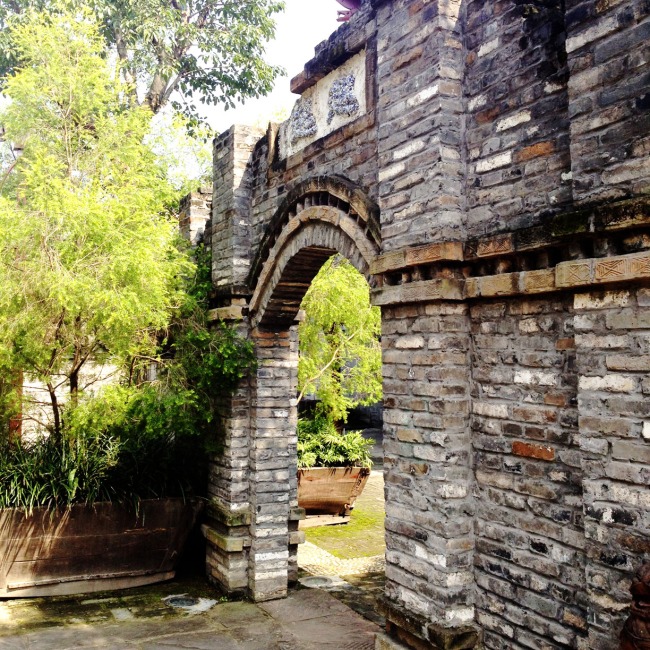
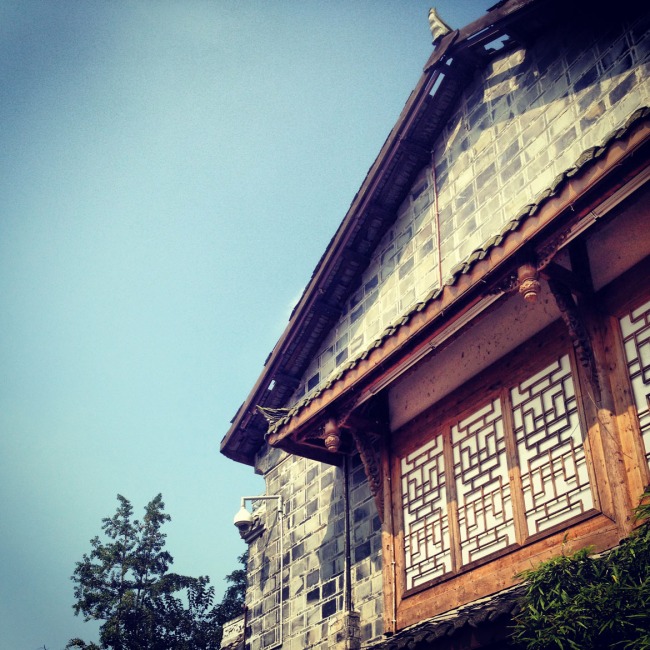
Much of the buildings and stone-paved streets here are preserved, although the lure tourism dollars had brought a tad too many gaudy souvenir shops to the area. Walking through this area on a quiet, weekday morning makes for a surreal experience.
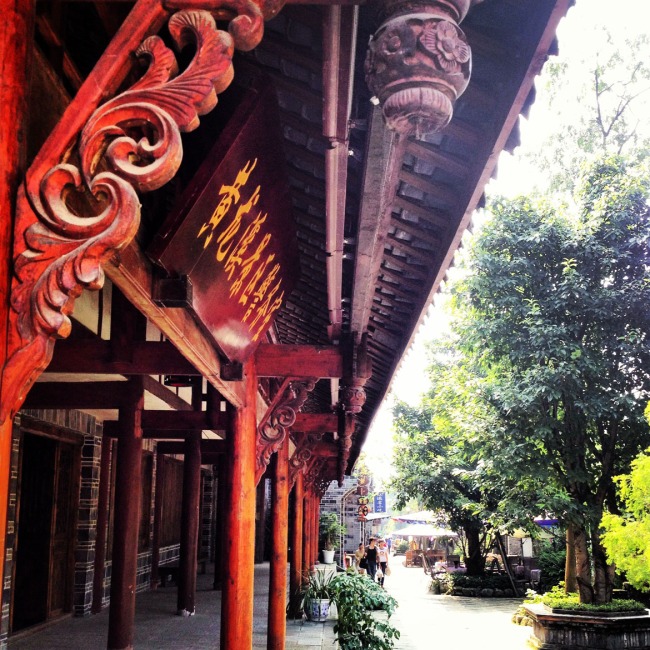
One could buy a headpiece made of large flowers and leaves to keep the sun out of one’s eyes or a delicate necklace of jasmine buds from the many grannies in the ancient town. And even if you did not buy something from these grannies, they would still flash you a toothless grin before tottering off to the next tourist.
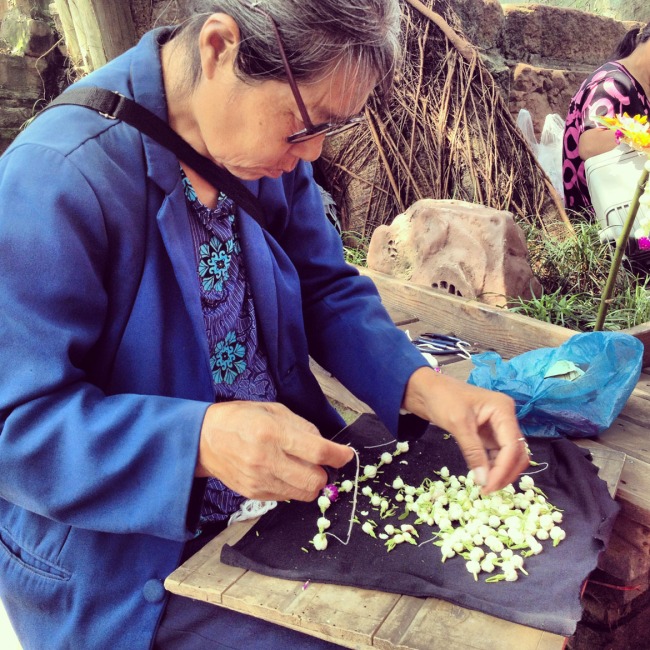
A narrow stream cuts through Huanglongxi Ancient Town, and several tea houses and snack shops line its banks. It was a blistering hot day when I was there, so I settled down at a shaded table for a bottle of ice-cold Kronenbourg 1664. Bliss!
There are also many local snacks, such as sesame cakes and steamed fish tofu. The latter is cooked in a potent-looking broth of Sichuan spice and chilli oil, as you can see in the picture below. I love spice, but even that looked too explosive for me.
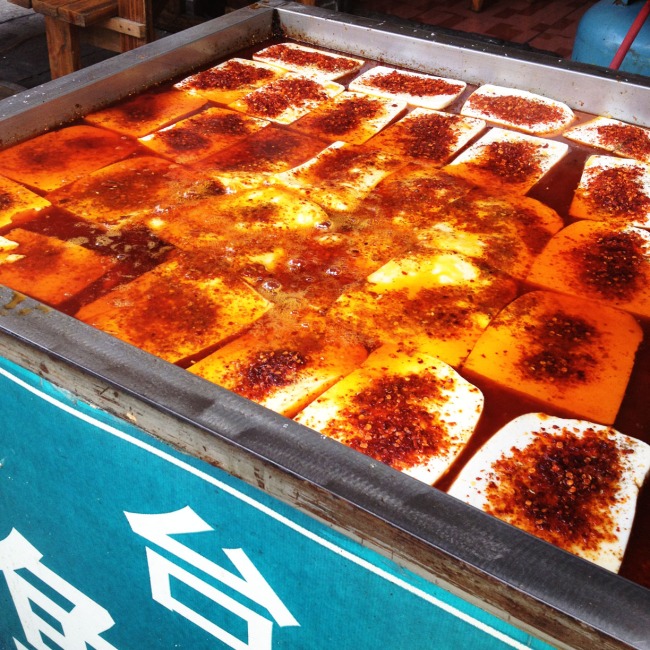
If one was in comfortable walking shoes, and the weather was not too hot, one could probably spend half a day or more exploring Huanglongxi Ancient Town. But I was in a pair of Melissa Dreaming+Julie Petit, which was more suited for a spot of shopping in a mall, and my outfit was too thick for summer (the weatherman lied that the temperature in Chengdu would be around 15-23°C but it was around 30°C!).
So after two hours, I was close to melt-down and had to return to my hotel for a cold shower and change of clothes.
On another day, I visited Kuanzhai Alley, an area with a mix of broad (hence, kuan, which means broad in Mandarin) and narrow (zhai in Mandarin) alleyways that are lined with Ming and Qing Dynasty-style courtyards and grey stone buildings.
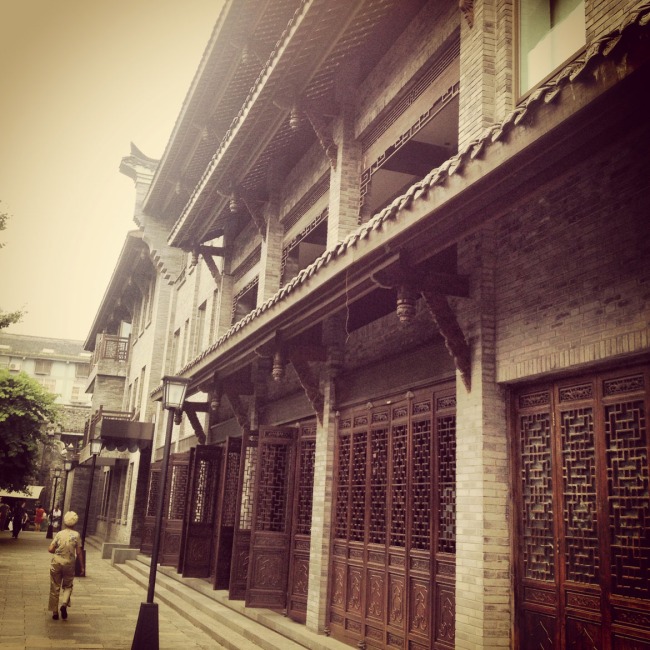
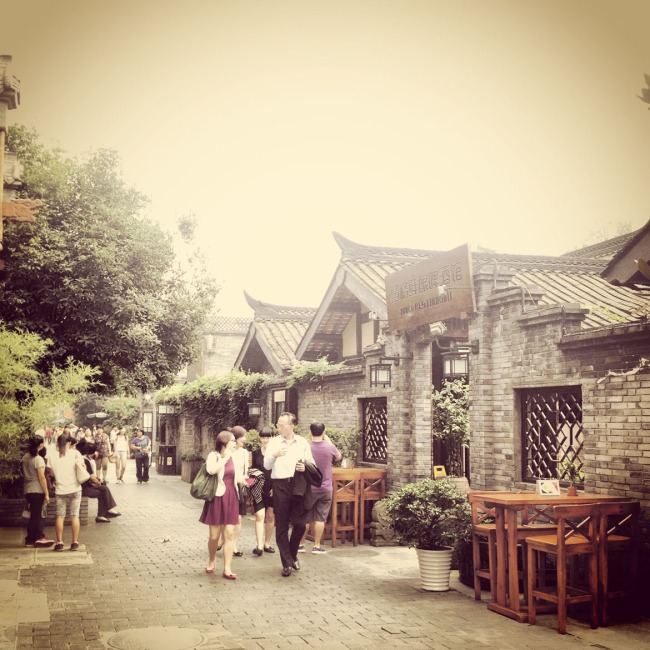
These buildings now house quaint cafes, casual eateries favoured by locals, fancy restaurants favoured by tourists, art galleries and trinket shops. There are also one or two opera houses. Sichuan opera is said to be different from the usual Chinese opera, as it features different musical instruments and lots of stunts, such as fire spitting and rapid face-changing.
My companions were not quite keen on Sichuan opera, so I missed the opportunity to see it for myself.
Occasionally, one would chance upon a mobile stall that provided ear-digging services. The older folks seem to really love having their ears cleaned in public!
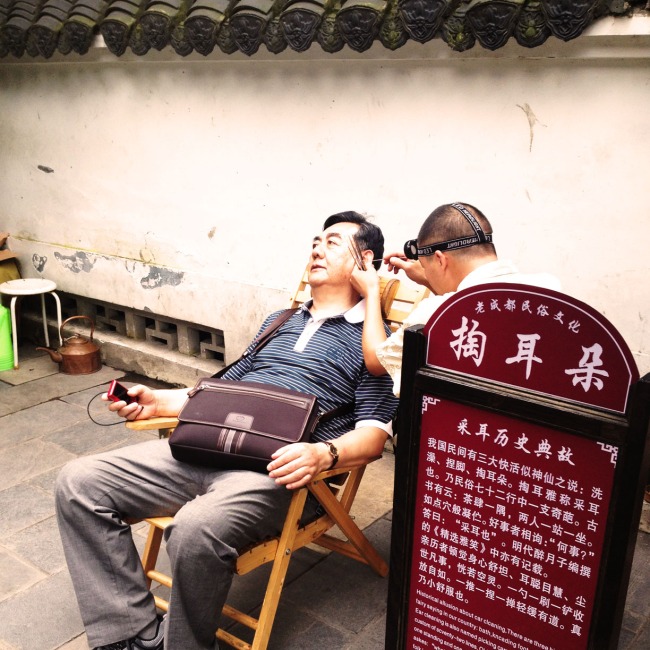
According to the red signboard in the photo above, ear-digging is one of three things that could make one happy like a fairy. One of the other two is a bath, and the third has something to do with feet; damn my limited Mandarin skills. :(
I was told that Kuanzhai Alley truly comes alive after the sun sets, as that is when the beer bars and live music clubs open their doors. I will just have to determine if that was true on my next trip to Chengdu.
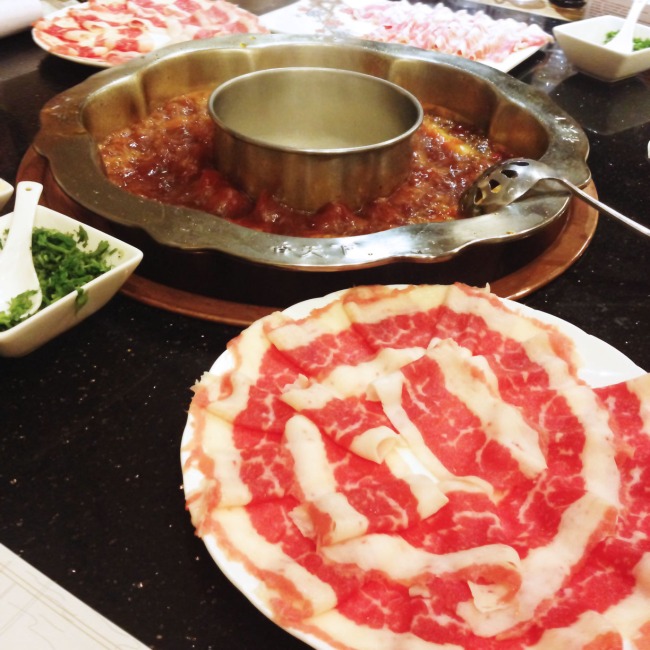 The eating process was a delight, as the oil was mind-blowingly, tongue-numbingly spicy and the Australian beef slices were fresh.
The eating process was a delight, as the oil was mind-blowingly, tongue-numbingly spicy and the Australian beef slices were fresh.







